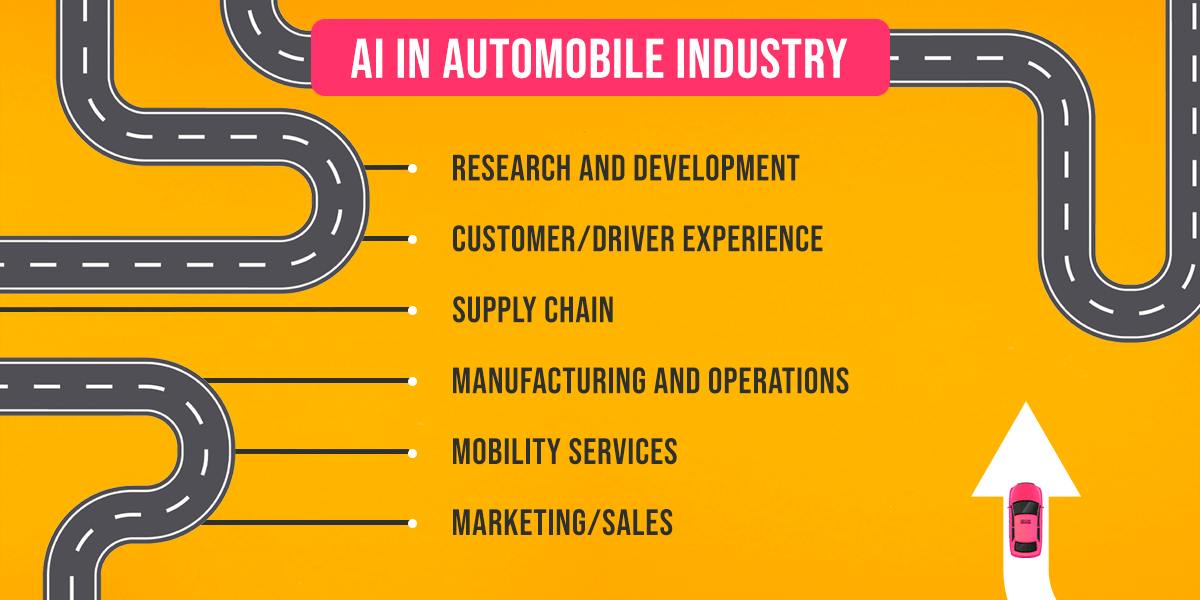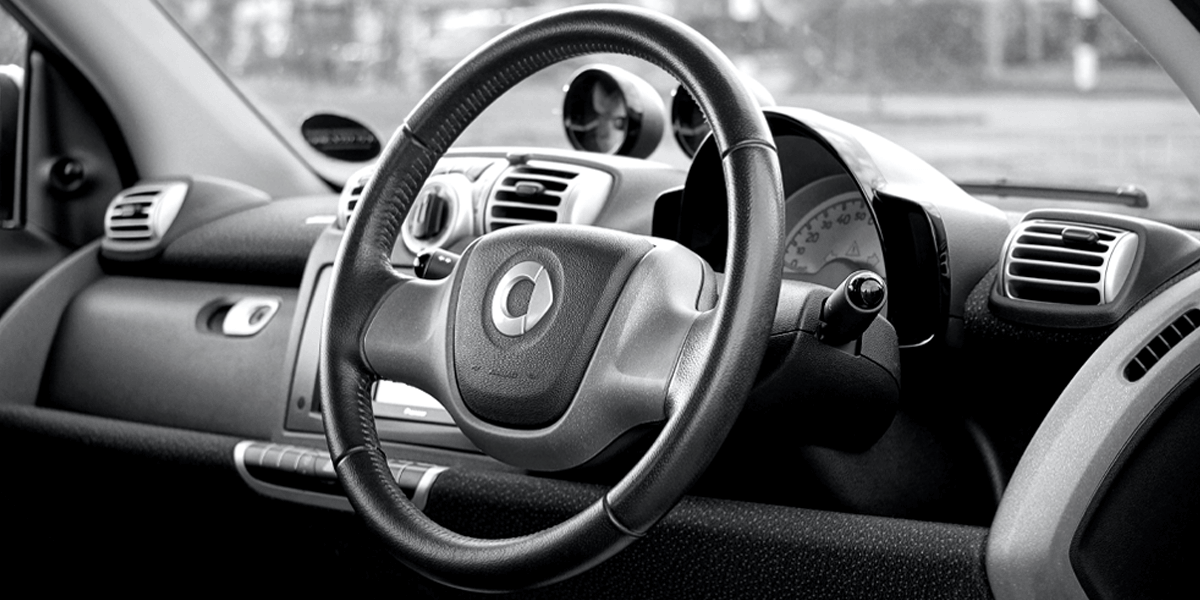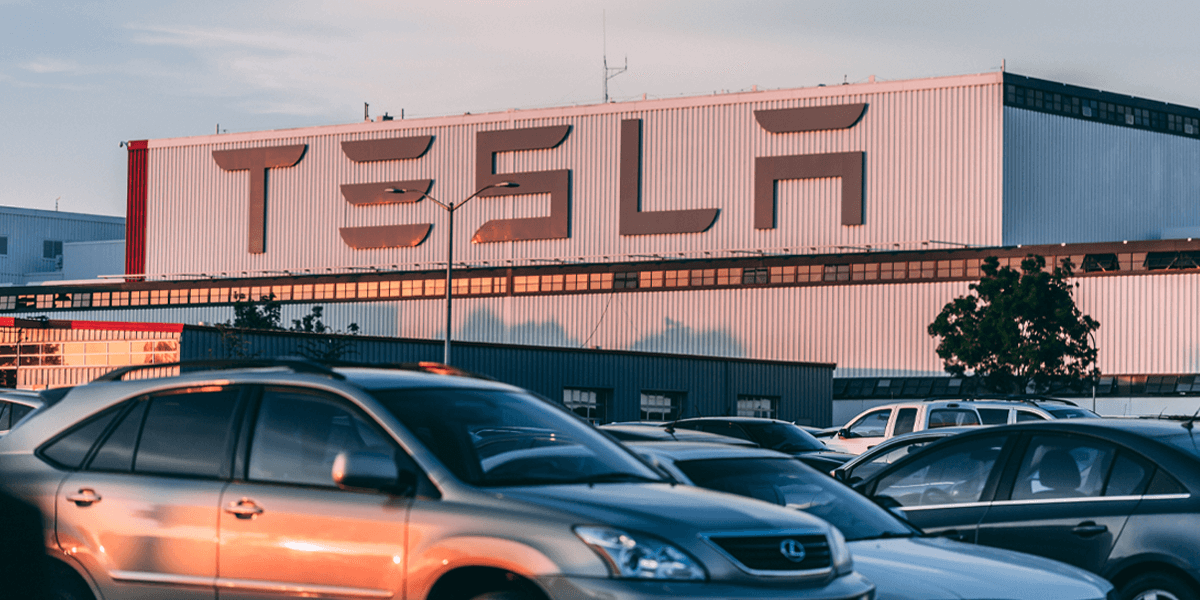Artificial intelligence is transforming every facet of the automobile industry. In today’s world, it’s impossible to imagine our lives without public transport and private vehicles. Automotive industry is no exception to discoveries and trends. Industry giants such as Kia, Nissan, Mercedes, and Tesla are reshaping the landscape through machine learning in the automotive industry.
Take a look at these 6 functional areas of the automobile industry and how they are being revolutionized by AI:

1- Research and Development
This is one of the most crucial applications of artificial intelligence in automobiles. Current R&D is focused on attaining greater speed and economical design. For instance, General Motors’ prototype is probing the feasibility of this through machine learning. They are working on a project named, “Dreamcatcher system”.
Similarly, Continental is working on a virtual simulation program capable of generating vehicle test data through Advanced Driver-Assistance System (ADAS).
2- Customer/driver Experience
The implementation of artificial intelligence in the automotive industry also involves driver and customer experience. Major automotive companies are working on connected car experience. For instance, Toyota offers both hybrid navigation and a voice assistant.
The voice assistant system consists of access instructions, audio system, and the navigation system. Hybrid navigation, on the other hand, consists of an on-board navigation system and cloud-based map data.
3- Supply Chain
Use of AI in the automotive industry has expanded to supply chain operations, particularly quality control. For example, Audi is examining the application of AI in the automotive industry, namely quality control, by employing image recognition software and smart cameras.
The system generates millions of images and identifies the finest of faults or cracks. The accuracy of AI in quality control can be determined by the fact that it detects faults at the pixel level.
4- Manufacturing and Operations
Robots have long been employed by automotive companies for car welding, painting, assembling, sorting, moving, and collecting items. The AI automotive industry has greatly reduced the human labour in manufacturing.
Artificial intelligence in car manufacturing has become crucial to detect component failure and the subsequent downtime. General Motors, for example, designed an image classification tool to prevent component failure in nearly 7,000 robots.
5- Mobility Services
Companies like Lyft and Uber are using predictive analytics to adjust prices in real-time according to different geographical locations. Use of AI in cars has led to improved fleet management and last-mile delivery.
Michelin is making headways in this area by creating a tire-monitoring system to keep real-time tabs on wearing and performance of tires. This synergy of AI and cars has reduced parcel load time by 15% for Mercedes Benz!
6- Marketing/sales
The automobile industry like every other industry has become highly competitive in recent years. Hence, personalization is the key when it comes to winning customers’ hearts. Role of AI in the car industry has become a crucial tool in gaining that competitive edge.
A good example of that is Volkswagen. The company is utilizing machine learning for growth forecasting and sales planning.
Self-driving Cars
One of the most well-known applications of AI in the automobile industry is self-driving car technology. Companies such as Google Waymo, Tesla, and NVIDIA are investing massive resources in this technology.
Gaining consumer trust regarding safety considerations and making fully autonomous vehicles legal remain the most critical challenges of artificial intelligence and cars. Use of computer vision for identifying pedestrians, streetlights, and objects is the major feature of autonomous vehicles.
Going Forward
Use of artificial intelligence for automotive applications is expected to involve sustainability aspects in future. It means that AI in automotive manufacturing will be used for monitoring waste production, maintaining quality and improving recyclability in the coming years.


